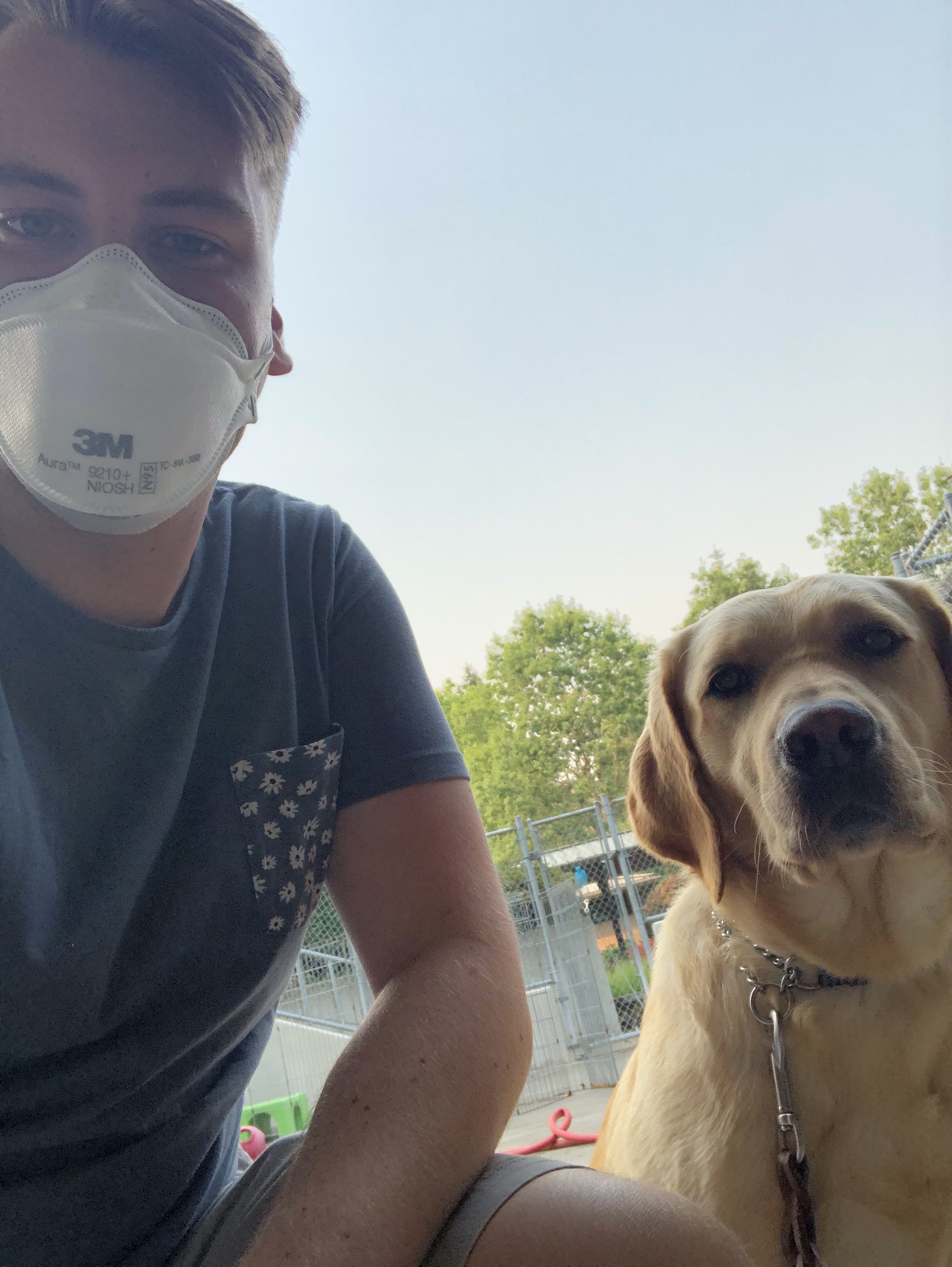Poor air quality can affect dogs as well as people. The Air Quality Index (AQI) is the Environmental Protection Agency’s index for reporting air quality. An AQI of 101-150 can be unhealthy for sensitive groups and puppies, senior dogs or adult dogs with breathing/heart issues should be kept inside air conditioned homes with short visits outdoors to eliminate. Once an AQI is above 151, this is considered unhealthy for everyone. Dogs and puppies should be kept indoors with short trips outside to relieve. Vigorous outdoor exercise should be avoided.
In situations where air quality is considered unhealthy, meaning the air quality index (AQI) is above 150, or in the “red zone”, on reputable internet sites such as AirNow, GDB’s Director of Veterinary Medicine, Dr. Kate Kuzminski recommends the following:
- Keep dogs indoors as much as possible and keep the windows shut. Use an air conditioner, or air purifier, to filter the air if possible.
- Shorten the time your dog is outdoors. Dogs should go out for regular relieving opportunities but walks should be kept to a minimum. Puppies and senior dogs may be more sensitive to poor air quality. These dogs may be adversely impacted by AQI’s that are in the 100-150 range (‘orange zone’) as well.
- Avoid intense outdoor exercise during periods of poor air quality. Regular walks and strenuous outdoor activities can resume once the air quality improves.
- Monitor your dog for signs of respiratory distress and eye inflammation. If your dog is having difficulty breathing, is coughing/sneezing excessively, is weak/lethargic, or has swelling or inflammation of the mouth, eyes, or upper airway, please see a veterinarian.
- GDB does not recommend canine masks unless specifically instructed by your veterinarian. Putting a mask on a dog may be unnecessarily scary or uncomfortable for the dog.
For those living in close proximity to fire activity, including your animals in your disaster preparedness planning and having an animal evacuation kit ready is advisable. Click here to learn more about preparing an emergency kit for your dog.
Finally, as we all know, spending increased time inside with fewer opportunities for physical and mental stimulation can lead to boredom and, potentially, behavioral challenges in dogs. Previously, the GDB Field Team provided suggestions for “Boredom Busters” during COVID-19 travel restrictions which may also come in handy during periods of poor air quality.
As always, please feel free to call us with any questions. The Support Center team is available and ready to assist you Mon-Fri from 8:00 AM -5:00 PM Pacific Time by calling 800-295-4050.




